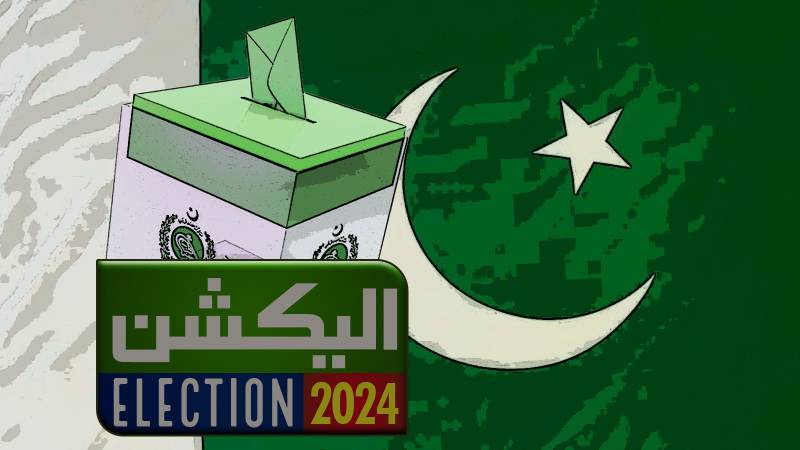
The cult of leadership is akin to sleepwalking in public. The deification of leaders has resulted into the dwarfism of the masses. The time has come for a collective awakening, a questioning of everything, especially the process of choosing our government.
In daily life, individuals check the quality of flour, the source of the meat they consume, and even the purity of sugar. Whereas, when it comes to electing a government, a curious complacency often takes over, and manifestos are accepted without deeper inquiry. It is time to shift our mindset, to ask questions that transcend the boundaries of caste, friendships, and regional affiliations. For the next five years, let us question the promises made by the people that are going to govern us regarding our wellbeing, education for our children, and the overall health of our nation.
In political discourse and election promises, the work of Michel Foucault offers a powerful lens through which to scrutinize the complexities of power, knowledge, and societal structures. Foucault's work, characterized by its emphasis on the relationship between power and discourse, encourages us to question not only the content of political manifestos but also the underlying mechanisms that shape our understanding of truth, morality, and governance. How can three hundred units of electricity be free in a debt-ridden country that owes Rs. 78 trillion? What is the concrete economic plan for thousands of houses and crores of jobs? How do these initiatives align with the terms and conditions set by international financial bodies, particularly the International Monetary Fund (IMF)? These are questions that explore into the heart of political promises, demanding transparency regarding the feasibility of such processes and inquiring about the strategies for implementation and funding.
In the unending worship of cinematic figures, there lies a deliberate diversion to stifle discourse on pressing economic issues facing our nation. Let's step out of this cycle of distraction and ask ourselves: does any political party have a clear and solid plan for economic growth? And, importantly, is there a specific focus on empowering women economically in that plan? Increasing women's participation in Pakistan's labor force emerges as a critical factor, not only for gender equality but also for economic prosperity. If women's participation in the workforce matched that of men, Pakistan's GDP could increase by 60% by 2025, according to The International Growth Centre (IGC) study. Another estimate suggests that closing the gender gap in labor force participation could lead to a one-off 30% boost in GDP.
Globally, women form 38.8% of the labor force, but just around 20% in Pakistan, one of the lowest in South Asia as per an IGC study. Pakistan ranks poorly on all gender-related indicators according to the Global Gender Gap Index Report 2022. The report places Pakistan at 145 out of 156 countries in terms of women's economic participation and opportunity. The Global Wage Report 2018-19 by the International Labor Organization estimated the gender pay gap variation between men and women at 34%. Additionally, Pakistan shows the largest gender gaps among electoral democracies in voter turnout, with men being 20% more likely to vote.
However, the major political parties seem to neglect these critical issues. Campaign promises, especially in rural areas, often revolve around promises to cover open drain lines with concrete slabs, neglecting larger responsibilities. The glaring gaps in Pakistan's tax system contribute to a host of public service delivery issues, leaving millions without clean water, adequate sanitation, and proper healthcare.
Pakistan has been unable to expand taxation despite several donor-supported reform attempts. The tax-to-GDP ratio continues to hover around 10% of the GDP, contributing to significant public service delivery gaps. Over 20 million people live without clean water, almost one in every three people do not have a decent toilet, and about 40% children under the age of five have stunted growth. In Karachi, residents have to use a mix of private vendors, water mafia, and the government to get access to water. The reason for this failure of sufficient public service delivery is partly Pakistan’s ineffective tax system, which has struggled to expand beyond taxing imports and consumption.
Between 2008 and 2021, Pakistan’s federal government collected between 36% to 39% of its tax revenue from direct taxes, while the rest came from indirect taxes. The inability to expand tax revenue contributes to significant public service delivery gaps, and the lack of sufficient revenue collection mechanisms impedes progress in achieving the Sustainable Development Goals (SDGs).
The pressing economic issues facing Pakistan call for a collective awakening. A collective questioning into political promises, economic plans, and the urgent need for tax reforms is essential for fostering transparency, accountability, and progress. As citizens, it is our responsibility to question the cult of leadership that perpetuates a cycle of unfulfilled promises. By embracing a Foucauldian lens, we can unravel the complexities of power dynamics, challenge societal norms, and actively participate in shaping a more equitable and prosperous future for Pakistan. Let the awakening begin, ushering in an era of critical reflection and active citizenship for a brighter, more equitable future.

